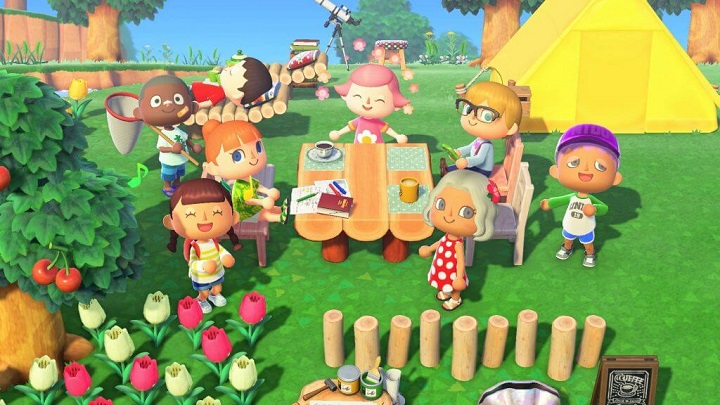Video Games Promote Reading and Writing, Suggests a UK Survey
The British charity National Literary Trust has published the results of a survey on the relationship between video games and reading. The survey shows that gaming can be an incentive to develop writing and reading skills as well as empathy.

The popularity of video games makes them a grateful subject for various research and scientific dissertations. Of course, some of them fit into the trend of proving a positive correlation, but more and more people are paying attention to the positive impact of digital entertainment. These include the authors of a report by the British charity National Literacy Trust. The Foundation is involved in promoting reading and writing, and its most recent survey supposedly linked these activities to video games. Over 4.6 thousand children between the ages of 11 and 16 took part in the survey.
As we read in the report, almost 80% of gamers read texts related to video games at least once a month, whether as part of communication from the game level (39.9%), or when reading reviews and blogs (30.5%), books (21.8%) or fan stories (19.4%). Every third respondent also believed that gaming makes him a better reader. The results also confirm that the discussed medium is easier to reach people who do not like reading than books are. 73% of respondents stated that this way they feel more like part of the story.

Text narration and dialogues in video games (for example Darkwood) can encourage more frequent reading.
The players' contact with the broadly understood literature is not limited to reading alone. More than 62% of children surveyed are also involved in "writing". This work takes the form of video game scripts (27.5%), so-called fanfics (10.8%) and blogs and reviews (8%), but also advice for other players (22.1%). In addition, 58% of respondents expressed a desire to write or design games in the future, and 31% would like to read and write about games at school.
The Trust Literary Report also mentions the impact of digital entertainment on communication and empathy. As many as 65% of players think that games help them imagine themselves as someone else and, as one of the respondents stressed, "understand other people's point of view". Moreover, the respondents stated that they talk more often to their friends about games (76%) than about books (29%). The authors of the analysis also stressed the relationship between playing and building social bonds, both online and in real life. This also applies to maintaining contact in times of the pandemic and limiting the number of people leaving home.
Speaking of which, the survey shows that games also help to maintain the mental health of players who are de facto isolated from the world due to the coronavirus threat. About 56% of surveyed parents confirmed that their children talked to family and friends about video games during the forced stay at home, and 60% believe that this had a positive effect on their child's psyche.

The report definitely does not cut the discussion on the impact of games on young people, especially as many of the statements in the summary are about the very subjective feelings of respondents. However, the National Literature Trust has taken these results to heart and, with the support of the UKIE Foundation and the Penguin Random House Children publishing house, the organisation has prepared video game-related resources. This includes a challenge to write ones own screenplay and a list of titles that encourage young people to read. Perhaps these materials will test the originators of the introduction of "digital texts" to the list of school readings in countries such as Poland, which recently added a video game to school curriculum. An interview with Rhianna Pratchett (a writer and scriptwriter associated with Mirror's Edge and Rise of the Tomb Raider, among others) was also published about the potential of video games in developing reading and writing skills (available below).
0

Author: Jacob Blazewicz
Graduated with a master's degree in Polish Studies from the University of Warsaw with a thesis dedicated to this very subject. Started his adventure with gamepressure.com in 2015, writing in the Newsroom and later also in the film and technology sections (also contributed to the Encyclopedia). Interested in video games (and not only video games) for years. He began with platform games and, to this day, remains a big fan of them (including Metroidvania). Also shows interest in card games (including paper), fighting games, soulslikes, and basically everything about games as such. Marvels at pixelated characters from games dating back to the time of the Game Boy (if not older).
Latest News
- End of remote work and 60 hours a week. Demo of Naughty Dog's new game was born amid a crunch atmosphere
- She's the new Lara Croft, but she still lives in fear. Trauma after Perfect Dark changed the actress' approach to the industry
- „A lot has become lost in translation.” Swen Vincke suggests that the scandal surrounding Divinity is a big misunderstanding
- Stuck in development limbo for years, ARK 2 is now planned for 2028
- Few people know about it, but it's an RPG mixing Dark Souls and NieR that has received excellent reviews on Steam, and its first DLC will be released soon

